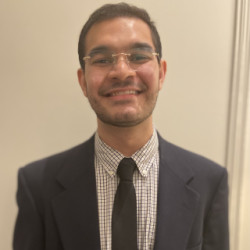As a fourth-year medical student pursuing a neurosurgery residency, I've been fortunate to learn under the guidance of incredible mentors in academic neurosurgery. However, I've also come to realize that much of what I have learned extends beyond textbooks, lectures, or even the OR itself. There is a "hidden curriculum" in neurosurgery — a set of unspoken expectations and values that shape the training environment and the future of those of us eager to join this specialty. This hidden curriculum is not about hurdles or negativity; instead, it offers a unique pathway to growth, excellence, and a deeper understanding of what it means to be a neurosurgeon.
The Art of Anticipation
One of the first unspoken lessons I learned was the importance of anticipation — thinking two steps ahead in every clinical scenario. In academic neurosurgery, the pace is fast, and decisions can be life-altering. During my first rotation, I was struck by how attendings and residents seemed always to be two moves ahead, predicting potential complications or changes in a patient's status long before they occurred.
While shadowing in the OR, I noticed a senior resident meticulously checking the patient's positioning and alignment, even though the attending had already given the go-ahead. When I asked why, he said, "Always anticipate the unexpected. Be prepared before it becomes a problem." This mindset has been a game-changer for me, influencing how I approach every patient interaction and study session. By embracing this principle early on, I have learned to think more critically, to stay calm under pressure, and to view every step as part of a broader surgical strategy.
Humility and Continuous Learning
Another valuable lesson from the hidden curriculum of neurosurgery is the importance of humility and a commitment to lifelong learning. Academic neurosurgery is a field where knowledge is constantly evolving, and new technologies and techniques emerge regularly. The most accomplished neurosurgeons I’ve observed are those who approach every case with a sense of humility, recognizing that there is always more to learn.
I witnessed this firsthand when an attending neurosurgeon asked a resident for their opinion on an alternative surgical approach for a complex tumor resection. The humility of this act — valuing the input of a less experienced colleague — demonstrated the culture of collaborative learning that thrives in academic neurosurgery. It reinforced the idea that, regardless of one’s experience level, everyone has something valuable to contribute. This spirit of continuous learning and humility fosters an environment where innovation and progress are possible, driving both personal and professional growth.
Patient-Centered Focus
In neurosurgery, the hidden curriculum emphasizes that our role extends far beyond the OR. While the technical skills required for surgery are essential, I have come to understand that the essence of neurosurgery lies in our relationships with patients and their families. It’s about listening, explaining complex conditions in understandable terms, and providing reassurance in moments of uncertainty.
During one clinic day, I observed an attending spend over an hour with a family grappling with a new diagnosis of a brain tumor. Despite a packed schedule, the neurosurgeon took the time to answer every question, explain every detail, and discuss the treatment options thoroughly. It was clear to me that this level of care and compassion was an expectation — not just a choice. This experience underscored the hidden curriculum’s emphasis on patient-centered care, reminding me that the core of neurosurgery is about helping people navigate some of the most challenging moments of their lives.
Resilience and Adaptability
Another key aspect of the hidden curriculum in neurosurgery is resilience and adaptability. Neurosurgery is known for its demanding nature, requiring long hours and unwavering focus. What isn’t always discussed openly is the resilience it takes to thrive in such an environment. The culture within academic neurosurgery encourages the development of this resilience by teaching students and residents how to adapt, manage stress, and remain focused on the ultimate goal—improving patient outcomes.
During my rotations, I saw this resilience in action, particularly when unexpected challenges arose. Whether it was dealing with a complex complication during surgery or managing a sudden influx of emergency cases, the neurosurgery team always displayed remarkable composure and adaptability. The message was clear: resilience isn’t just about surviving the demands of neurosurgery; it’s about embracing them as opportunities for growth.
The Power of Mentorship and Teamwork
Lastly, the hidden curriculum in neurosurgery heavily emphasizes mentorship and teamwork. In academic neurosurgery, mentorship is not merely about teaching surgical techniques; it is about shaping future leaders who are not only skilled surgeons but also compassionate caregivers and collaborative colleagues. I have had the privilege of learning from mentors who exemplify these qualities and who have instilled in me the importance of passing on knowledge and supporting peers.
Teamwork, too, is an unspoken yet vital expectation. Neurosurgery is rarely a solo endeavor; it is a collaborative effort that requires trust, communication, and mutual respect. Observing the seamless coordination between neurosurgeons, anesthesiologists, nurses, and support staff during complex cases has highlighted the significance of every role in achieving a successful outcome.
Reflecting on my journey as a medical student in academic neurosurgery, I have come to appreciate the hidden curriculum’s positive influence. The unspoken expectations around anticipation, humility, patient-centered care, resilience, mentorship, and teamwork have shaped my growth as an aspiring neurosurgeon. These lessons are not obstacles but opportunities — opportunities to become a better clinician, colleague, and future leader in the field.
As I prepare to apply to residency, I am excited to continue learning from the hidden curriculum and to embrace the challenges and rewards that come with a career in academic neurosurgery. It is this unspoken guidance that has inspired me to pursue a path where I can make a meaningful impact on both individual patients and the broader medical community.
Mustafa Farooq is a fourth-year medical student at the Medical College of Georgia, currently applying to neurosurgery residency. Passionate about the intersection of neurosurgery and public health, he aims to contribute to both individual patient care and broader community health initiatives.
Image by GoodStudio / Shutterstock






